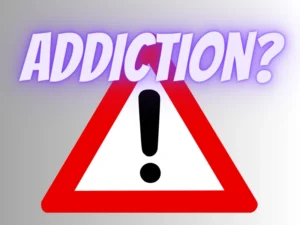Addiction is a multifaceted and intricate condition affecting millions globally. A comprehensive understanding of its characteristics is crucial for providing the necessary support and treatment for those battling with this issue. This paragraph offers some essential points to help you understand what addiction is.

Understanding Addiction
Brain Condition: Addiction is a brain disorder characterized by an individual’s habitual use of substances or constant engagement in behaviors to the point of compulsion. This reliance affects the brain’s reward system, motivation, and memory circuits, which instigates a strong desire to persistently use the substance or continue with the behavior.
Chronic Disease: Just like other chronic diseases – for example, diabetes – addiction has a high relapse rate, making it a challenging condition to manage. Extensive use of drugs or alcohol forms associations between an individual’s routine and their intoxication experiences, which complicates the process of breaking free from this dependence.
Various forms of addiction:
Although the term ‘addiction‘ commonly brings to mind images of drug, nicotine, or alcohol dependence, addiction can manifest in several ways. These include substance use disorders and behavioral addictions such as gambling, shopping, and excessive internet, social media, or pornography use. And clearly the form of addiction we deal with most in this blog, digital addiction disorder.
Risk factors
Genetics is the primary risk factor for developing a substance use disorder. Individuals with a dependency history in their family are at a higher risk than the average person. Other risk factors include familial issues, professional struggles, abuse, and societal issues.
Cycle of Addiction
The cycle of addiction usually involves cravings, usage, engagement, and withdrawal symptoms. This cycle is difficult to break as individuals often resort to increased substance use or addictive behavior, seeking temporary relief but only intensifying their dependence.
To identify potential risk factors and proactively manage addiction problems, our test may be useful. This test offers an immediate assessment (anonymous and without registration) of an individual’s history, including family, social and personal aspects. The test can help to see if potential vulnerabilities exist and can then help to prevent them.
TAKE the Addiction TEST
It should be noted that this test is an indicative tool and should not replace professional advice! It should be used in conjunction with other diagnostic methods and treatment approaches.
Triggers and relapse
Triggers are cues that trigger the impulse to enact behaviors typical of an addiction.
These stimuli can be environmental, emotional, or social and remind the person of his or her past. For example, a particular place, person, or state of mind can also be a trigger, and can thus reemerge a strong desire to take substances (or engage in behaviors).
Relapses, on the other hand, are the cases in which people return to craving certain substances or habits after a period of abstinence. They should not be considered signs of failure, but rather indicate that therapeutic measures need to be revised or intensified. Relapse is a common and very frequent part of any recovery journey. Sobriety is indeed a lifelong commitment and requires continuous efforts. In order to prevent relapse and get to full and long-term recovery, it is very important to know and effectively manage these triggers.
For further reading, you should consult your doctor of choice or the facilities in charge of prevention and treatment. Wikipedia also sometimes helps to get a better idea.
[…] for many people. However, as with anything, overuse can lead to problems, including social media addiction. It is important to recognize early signs that indicate possible addiction so that you can […]
[…] you ready to break free from the grip of social media, screen and Internet addiction and rediscover a more balanced and meaningful life? The “Digital Detox Log Book” is […]
[…] dependence on the use of digital devices such as smartphones, tablets and computers. This type of addiction can manifest itself in several forms, including excessive use of social media, online gambling, […]
[…] Tiktok addiction meme of the day every day, here are some of the most popular memes about TikTok addiction that have been circulating recently on social […]
[…] short, addiction is a primary and chronic pathological condition involving brain structures related to reward, […]
[…] Return to a world where verdant landscapes and the gentle rustle of leaves have the power to heal. In an increasingly digital age, where virtual reality has become an all-consuming escape, the need to disconnect from the virtual and reconnect to the natural is more crucial than ever.In this innovative blog post we will look at how nature remains the best treatment for virtual reality addiction. […]
[…] addiction, or ludopathy, is an impulse control disorder that leads to an irrepressible need to gamble, […]
[…] propensity test is an assessment tool designed to identify potential individual vulnerabilities to addiction. This test can detect susceptibility to various forms of addiction, such as alcohol, drugs, […]
[…] background. This also means gaining the ability to solve problems of various kinds, including addiction. But let’s move on to our selection of the best porn addiction […]